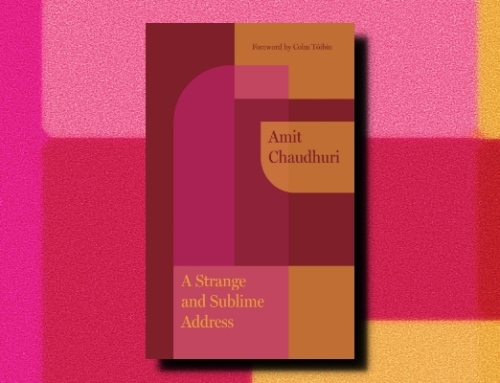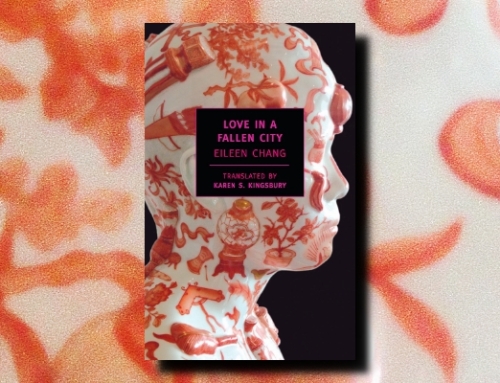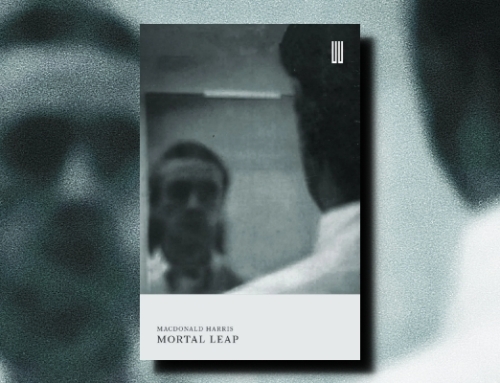Disgrace
by J.M. Coetzee (1999)
Penguin Books (2000)
220 pp

When Coetzee won the Nobel Prize in Literature in 2003, Disgrace was the first book I bought by him. Though it was short, it took me a long time to open it up and begin to read. Years in fact. When I finally did begin reading it, I consumed it in less than one day, a busy day at that.
Disgrace is a very quick read. But it’s not quick just because it’s short (though it is short); it is a quick read because Coetzee’s writing is sweet and simple. I don’t remember getting tied up by a single sentence. Its simplicity on the surface is even more impressive when considering the complexity — all the allusions, all of the conflicted feelings — that is actually going on. As an example of how fast this book can move and yet how much goes on in the lines, anything I disclose in this post takes place in the first thirty pages — and so much happens in those thirty pages, so many emotions that affected me viscerally.
The novel opens up when David Lurie’s prostitute stops meeting with him. He’s caught a glimpse of her outside the hotel room where they met weekly and where, until now, they’ve had a great relationship. He wants to console her, tell her that he understands:
He is all for double lives, triple lives, lives lived in compartments. Indeed, he feels, if anything, greater tenderness for her.
But she cannot deal with the fact that a client has seen her in her daily life, so she drops him. His week becomes “as featureless as a desert.” He seeks to assuage his libido (let alone his ego) by seducing one of his students. It is one of the most painfully compelling sections of a book I’ve ever read. In a way I felt guilty for reading it, like I was somehow involved. That sick feeling of guilt and desire radiates from the page. It’s an unpleasant thing to experience, especially when Coetzee inserts cold reason.
He is vexed, irritated. She is behaving badly, getting away with too much; she is learning to exploit him and will probably exploit him further. But if she has got away with much, he has got away with more; if she is behaving badly, he has behaved worse. To the extent that they are together, if they are together, he is the one who leads, she the one who follows. Let him not forget that.
And this is just the first thirty pages. The real force of the book comes after this, when Lurie moves away to live with his daughter on her farm. There is more disgrace to come.
David Lurie is a character to be despised — at least, that’s what I wanted to do. I couldn’t fully despise the man though. Somehow I could not help but pity him and feel somewhat complicit. Underneath the cold, selfish skin, there was a real human being. I don’t quite know why. I admit that I have not fully informed myself of the criticism this book takes from those who purport to know about South Africa and race relations post-apartheid. I’m not sure how I’d feel about it if I knew more, but as I stand now, it is a book to be read for its stylistic, stark beauty and for its substance.
I leave this review with a few questions here, about various matters.
What is the connection with the animals? That was an aspect that I didn’t particularly care for honestly, but maybe I just didn’t get it. Even though I pitied the animals, it was in no way sufficient for me to associate that pity with anything I consider more important.
I can see some reasons why Lucy was so passive about her rape and her assaulters. But I know this offended a lot of people. How does it fit in the larger picture of the book? Her passivity and the somewhat redemptive ending do not seem to mesh in my mind.









Nice blog site. I like the idea of the “after you read the book section”.
I didn’t really enjoy Disgrace that much, you can read my review here : http://redheadramble.wordpress.com/2008/05/31/disgrace-by-jmcoetzee/
The questions that you have were the same ones I had so I can’t shine any light on them unfortunately..
What is your pick for winner of the “Best of Booker” prize.
Hi Redhead,
Thanks for the link to your review! Disgrace was on my personal shortlist for the Best of the Booker (I did like it more than you), but some of the reasons you didn’t like it definitely make sense and are reasons I didn’t vote for it.
My vote: Midnight’s Children, even though it won on the 25th anniversary already. I enjoyed Oscar and Lucinda and The Siege of Krishnapur a lot as well.
I am not sure if you’ll feel the same way, but I think I was more personally satisfied with Coetzee’s The Life and Times of Michael K, even though I wouldn’t put it in the Best of the Bookers . . . If you want to give him a second chance.
I’m about to post my views on the rest of the Best of the Booker shortlist (the next couple of days) so please return and give me your views on them as well if/when you’ve read them! Especially since we apparently disagree on The Ghost Road! I would like to like that book more.
Yes, The Ghost Road does seem to be a polarizing book – I think I really got into it because I read all three in the trilogy in quick succession. However, overall I thought Regeneration was the best novel of the three.
I am planning on reading the remaining novels on the short-list, but this may take me some time!. Oscar and Lucinda will probably be next.
Saw this morning that Disgrace was made into a movie, released last year and sporadically this year at various film festivals (but nothing in the U.S. that I can see). It stars John Malkovich. I like John Malkovich but didn’t see anything like him when I pictured Prof. Lurie. I like this book but don’t know if I’d like a movie of the book. Has anyone seen it?
When in doubt about a movie/ a book that’s become a movie, always consult Roger Ebert.
You remind me that I need to get down to this book again.
Trevor, this is my first foray into Coetzee as well.
Several things about the position of “Disgrace” interest me. In 1990, Nelson Mandela was freed, and in 1994, he was elected president of South Africa. Coetzee’s “Disgrace” was published in 1999, only five years later. In about 2002, Coetzee emigrated to Australia, after living as an academic in his native South Africa for about thirty years – a period of violent intellectual and physical upheaval as South Africa lived through the imposition and dissolution of Apartheid. Coetzee had published steadily since 1974, but because his novels are so “literary” they escaped the censorship that Nadine Gordimer faced with “The Burgher’s Daughter” and “July’s People”.
Gordimer’s “July’s People” and Coetzee’s “Disgrace” are bookends to the Apartheid era: Gordimer imagines the violent, revolutionary end to Apartheid before it actually ended, and after Apartheid did end, Coetzee still imagines violence as Apartheid natural legacy.
I think these two books are well read together: both discuss the volcanic changes in self-perception that whites and blacks must negotiate after Apartheid. These books are both brilliant, and Coetzee is without doubt in conversation with Gordimer.
Another thing that I want to mention about “Disgrace” is that as Ronak Soni points out above, Roger Ebert considered the movie with John Malkovich to be very very good.
Another aspect of the book that interests me is Coetzee’s use of Byron. Professor David Luria , Coetzee’s hero, faces a volcanic assault on his perception of himself when he gets caught (finally) in a relationship with a beautiful student that is so inappropriate as to seem, in one view, to be a rape. (In fact, one could also argue that the student is using the professor to manage her dilemma with the course – she is so uninterested in it she has not done the reading. Perhaps she initially accepts his overtures as a means to help her grade. In the end, though, she finds the professor as uninteresting as the course, and she drops him, and it is possible she is uncomfortable with using him. When charges are finally made against the professor, we never hear what precisely why they have been made or precisely what she said.) What Coetzee makes clear, however, is that David is a serial womanizer who seems to have almost no grasp of his own cruelty to women. In this way, Coetzee sets up a situation somewhat akin to the white power that had held sway for centuries in South Africa – a group of people who had no grasp of their own illegitimacy or their own cruelty.
But I digress. Byron. Coetzee uses the professor’s interest in Byron as a way to demonstrate the changes that occur in David’s moral being. It is this continuing discussion that makes the book difficult; it is this maneuver that challenges the reader; in the face of the challenges of modern South Africa, the reader gets impatient with these digressions, as if David should be thinking about something else, which, of course, well he should be. But Byron is the language David knows, and as Coetzee observes throughout the book, one of the problems in South Africa is language. People are separated by knowing primarily one of the eleven languages of South Africa, and even more separated by the isolating force of each of these eleven cultures. At one point, David thinks, there is no language for what we are trying to say – “we must go back to ABC.” David’s own most potent language is that of Wordsworth and Byron, and so it is in this language that he makes his most eloquent progress toward an admission that his treatment of women was probably always cruel. Coetzee doesn’t make it easy on the reader: what we most want to see is David redeemed, but if we are to see even an edge of it we must delve into the difficult language of Byron.
Another challenge to the reader is the peculiar role that dogs play in this story. David’s daughter Lucy makes money boarding dogs, something of a come-down for a professorial family, but neither David or she is unable to prevent them being attacked and killed by local thugs, another come-down from the life of the white elite. Dogs are important, however, in the role that euthanasia plays in their life; one is reminded of holocaust, and in that way, one is reminded of Apartheid, and in that way, bit by bit, you make your way to moral ground, Buddhist moral ground, if you will, where all life is sacred. Dogs play a role in David’s redemption, if you could call it that, because he begins working in a rescue center, and he gradually begins to consider the life of the dogs that he is helping to euthanize and bury. Suffice it to say that David’s redemption has only begun when the book closes. He still has a long way to go. Think Raskolnikov in Siberia – but Raskolnikov knew that Sonia intended to save him through her love. David knows no such thing.
Finally, one of the most difficult aspects of the book is that when David and his daughter Lucy are grievously attacked by three local thugs, Coetzee positions the attack as an inevitable retribution, given that the men are black and David and his daughter are white. Petrus, Lucy’s “dog-man”, is away at the time, and he later claims one of these thugs as family. We are uneasy about Petrus. Did he allow this attack to happen? Did he make it more possible by being away at the right time? Did he encourage it? Not at all clear. What is difficult is the black-white nature of the attacks, with no “good” black people in sight who offer us hope. It is possible that Coetzee is presenting us ideas we cannot hear in our present language. Does the story suggest that there both good and bad in both black and white?
But Petrus benefits from the attack: he offers to Lucy protection. He suggests she be his third wife, something that would make her “family”, but there is a price – he would get the land. Coetzee appears to be proposing that it is the land that must be redeemed.
Coetzee’s surface simplicity is enjoyable but misleading; beyond the simplicity is complexity and question, almost at every turn. This is the kind of book I would love to teach, but only if once we had read it and discussed it we could read it aloud, so that every paragraph could be re-considered. But in addition, the framework for the study of this book must be history and literature, given the demands that the history of Apartheid will make upon the reader.
But in addition, no course on “Disgrace” could be complete with also reading “July’s People” and “Life TImes”, Gordimer’s collected stories – stories that readers of the New Yorker had been reading since 1951.
I imagine that one would also have to read Stephen Biko’s “I Write What I Like”, Nelson Mandela’s “Long Walk to Freedom”, as well as Desmond Tutu, Zakes Mda, Phaswane Mpe, and Nig Mhlongo, none of whom I have read as yet. Counted in this body of what should be included in such a course must be one of the films on The Truth and Reconciliation Commission. What have I left out?
But back to “Disgrace”. I think the novel’s simplicity is its brilliance. The reader thinks she gets David Luria, and yet with each passing chapter, the reader is confounded. One is not stopped by the language – the language is deceptively simple, as is the treatment of time and plot. One is confounded by the complexity of what is being suggested.
In “Is the film of JM Coetzee’s Booker-winner Disgrace a success?”,
Theo Tait reviews the Malkovich movie and at the same time cogently discusses the heated reception in South Africa of Coetzee’s 1999 novel. (in The Guardian, November 27, 2009: http://www.guardian.co.uk/culture/2009/nov/28/disgrace-coetzee-film-malkovich-review) Worth reading.